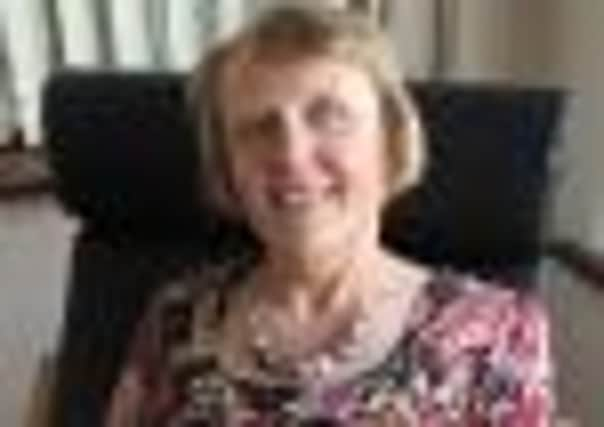Video: Patients help with pioneering cancer research


She underwent extensive surgery, drug treatments and radiotherapy, twice more fighting off the disease after it returned, to remarkably defy specialists’ worst fears and see her daughter begin high school.
Now she is taking part in a pioneering programme which could help others in the future.
Advertisement
Hide AdAdvertisement
Hide AdThe 44-year-old of Honley, near Huddersfield, was initially told in 2000 that she had a brain tumour but tests showed the cancer had spread and was malignant melanoma.


She has been disease-free since 2006 but her DNA is being used by scientists to examine how genetic tests could be used by the NHS to help to match cancer patients to the most appropriate treatment.
The move is a vital step towards “personalised medicine” tailoring treatments to individuals. It will also help specialists build a database of information for research into a new generation of targeted therapies to be used in future.
Under the charity Cancer Research UK’s stratified medicine programme, the ultimate aim is to establish a world-class NHS genetic testing service for cancer patients in the UK.
Advertisement
Hide AdAdvertisement
Hide AdThis will mean that when new targeted treatments become available, doctors will have access to the tests they need to help them decide which drugs are best for their patients by identifying others whose cancers have similar characteristics.
Mrs Hutson said she “jumped” at the chance to take part in the venture.
“I was told I was quite a unique case, so it’s good to think that knowledge gained from my DNA could help other people in the future,” she said.
“When I was told I had cancer, my little girl was just a baby and I didn’t think I would even see her start nursery school. I think I surprised many of the doctors that I am doing so well and I now look forward to seeing my daughter start university.”
Advertisement
Hide AdAdvertisement
Hide AdUnder the programme, patients will be asked to give a tumour sample to enable NHS genetic testing laboratories to extract DNA and analyse it for a range of molecular faults linked to cancer.
This will be stored alongside other information to allow researchers to compare the success of different treatments in relation to specific faults within cancer cells to help scientists design better targeted treatments.
Cancer Research UK and pharmaceutical giants Astra Zeneca and Pfizer are funding the £5.5m programme at centres in Leeds, Edinburgh, Cambridge, Cardiff, Glasgow, Manchester and London.
Prof Andrew Hanby, lead researcher at the Leeds Experimental Cancer Medicine Centre which will focus on melanoma, breast, ovary and bowel cancers, said: “We’re delighted to be involved in this exciting initiative, which will give Yorkshire people the chance to play a key part in making targeted treatments available for cancer patients across the UK.”
Advertisement
Hide AdAdvertisement
Hide AdJames Peach, director of Cancer Research UK’s stratified medicine programme, said “huge progress” had been made to unravel the genetic basis for cancer in the decade since the human genome project was completed.
“We know that prescribing certain drugs according to the genetic basis of a tumour can improve the chances of successful treatment,” he said.
“And by hardwiring research into the day-to-day care of cancer patients, we can harness the power of the NHS to bring personalised medicine a step closer to reality.
“This programme marks the beginning of the journey, and there is much to be done before we can bring the benefits of personalised medicine to every cancer patient.
“But I’m confident that within the next few years we’ll see personalised medicine changing the face of cancer treatment and saving many more lives from cancer.”